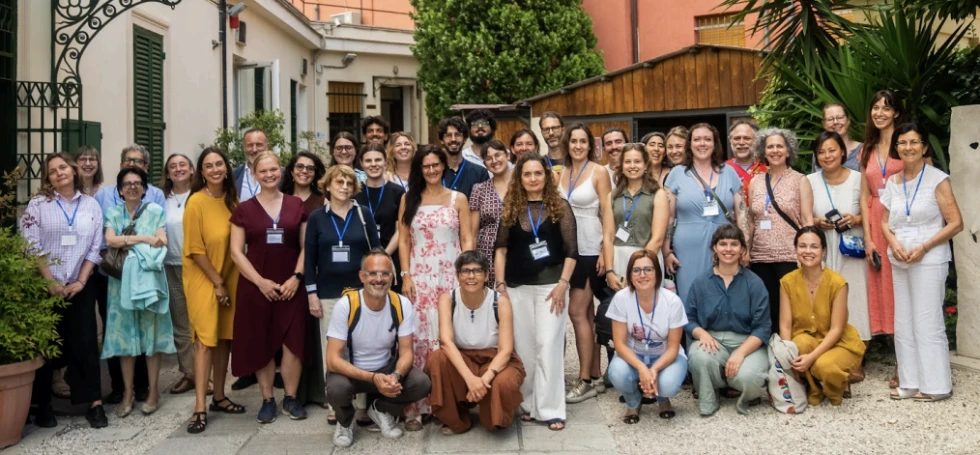RIFPC Director Nessa Richman reports on her June 2024 visit to the first international gathering of food policy councils as well as her visits with local and global food leaders.

Attendees of Food Policy in Action workshop at the American University of Rome in June 2025.
I visited Rome in June for the Food Policy Councils in Action Workshop with financial support from the host organization, the American University of Rome. Arriving in the city a few days early, I visited with leaders from the new Rome Food Policy Council and the Milan Urban Food Policy Pact as well as staff from the Food and Agriculture Organization of the United Nations, who are working on a new cross-departmental urban agriculture initiative. Funding for this trip was provided by conference organizers and a new private funder whose primary interest is in RIFPC sharing lessons learned with other FPCs.
Rome is an ancient city whose history is characterized by invasion, military domination, political transformation, trade, religion, and facism. These forces form a unique backdrop for the work that the Rome FPC is doing to create a sustainable food future for its people. It is also home to international food policy entities like the United Nations Food and Agriculture Organization (FAO), which adds important context to the work of the FPC.
June 16: Visiting Rome’s working class periphery
Conference host Laura Prota, a professor at the American University of Rome, took me and
Rodger Cooley, executive director of the Chicago Food Policy Action Council, to tour three innovative projects run by Rome FPC members. The sites were located in communities experiencing high rates of food insecurity exacerbated by socioeconomic factors.
- Agricoltura Sociale Capodarco. This “social agriculture” farm grows food on 23 publicly owned hectares and employs people previously incarcerated, people with developmental differences, and others who are hard to employ. It offers carpentry training and runs a cafe/market, with plans for a restaurant. It started 30 years ago when community activists “occupied” a nearby abandoned monastery, and the farm now sits in what had been a derelict public park.
- Quarticciolo Ribelle. Quarticciolo, a neighborhood in Rome, was established under Benito Mussolini’s fascist government, formally known as Fascist Italy, which lasted from 1922 to 1943. As part of broader urban development and social control initiatives, the government forcibly relocated working class families to neighborhoods such as Quarticciolo, where most of the housing now is disintegrating public housing erected between 1941 and 1943. Two Quarticciolo Ribelle co-op members explained how several abandoned buildings have been converted to create community centers, afterschool programs, and housing. They work with a cooperative farm to build short supply chains for beer that they make. They also plan to make wine.
- Nonna Roma. This organization was born in spring 2017 as a mutual aid program. Originally a voluntary association with no set location, it now has paid staff and a location in the high-density fifth municipality of Rome. It provides food (both dry goods and perishables) and free clothing to hundreds of residents weekly with the goal of combatting poverty and economic and social inequalities. Pantry beneficiaries “shop” for products that suit their family needs as opposed to picking up set bags or boxes of food products.
June 17: Milan Food Policy Office & Milan food systems activists
Rodger Cooley and I traveled to Milan to meet with members of the Food Poverty Office, which runs projects and activities related to hunger and food waste. They received an ‘Earthshot’ prize and other funds mostly external to the city (state or regional or EU) that allowed them to establish hubs around the city based in nonprofit organizations. These hubs provide access to excess food that has been collected from partnering grocery store chains and large distributors. The hubs emerged during COVID and have continued to show their worth to the community. Though they do not engage in policy advocacy, they strive to memorialize their programs in law to insulate them from electoral changes.
Through Laura Prota we met Roberto Sensi, who organized a meeting for us with food activists in Milan. Our wide-ranging meeting primarily focused on the absence of a FPC in Milan. Rodger and I provided an outside perspective on how this community group might provide a venue for public participation in food policy making.
June 18: Food and Agriculture Organization of the United Nations
The Food and Agriculture Organization (FAO) in Rome is a United Nations agency that leads international efforts to defeat hunger. Its goal is to achieve food security for all, including regular access to sufficient high-quality food to support active, healthy lives. FAO has 195 members—194 countries and the European Union—and works in over 130 countries worldwide. We spoke with Corinna Hawkes, director of the Division of Agrifood Systems and Food Safety, who emphasized that FAO is increasingly focusing on sub-national international networks and policy because that is proving more effective than national level work. We also met with Isis Nunez Ferrera and members of the FAO staff related to nutrition, food access, right to food, agroecology, food waste, and other areas. They explained their work as a transformative coordination approach in regard to urban food systems.
June 19-21: Food Policy Councils in Action Workshop, AUR
The Center for Food Studies at The American University of Rome and the City of Rome Food Policy Council hosted a workshop, Food Policy Councils in Action: Experiences, Lessons, and Work in Progress. The workshop’s overarching purpose was to discuss FPC experiences, successes, failures, and work in progress across cultures. I co-chaired a panel on “Food Policy Councils and Institutional Relationships: Between Autonomy and Integration” with Rome Food Policy Council chair Fabio Ciconte. I also presented on a panel about “Ensuring ethical governance including accountability & transparency.“

